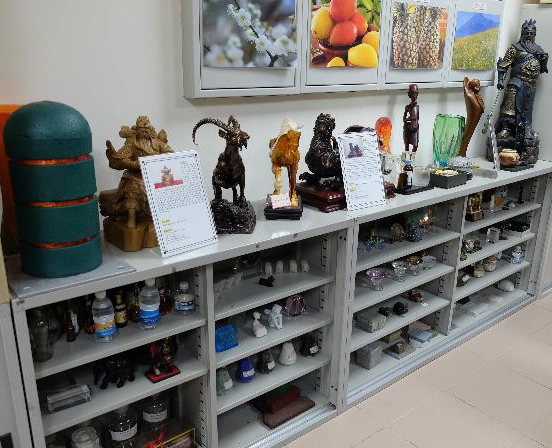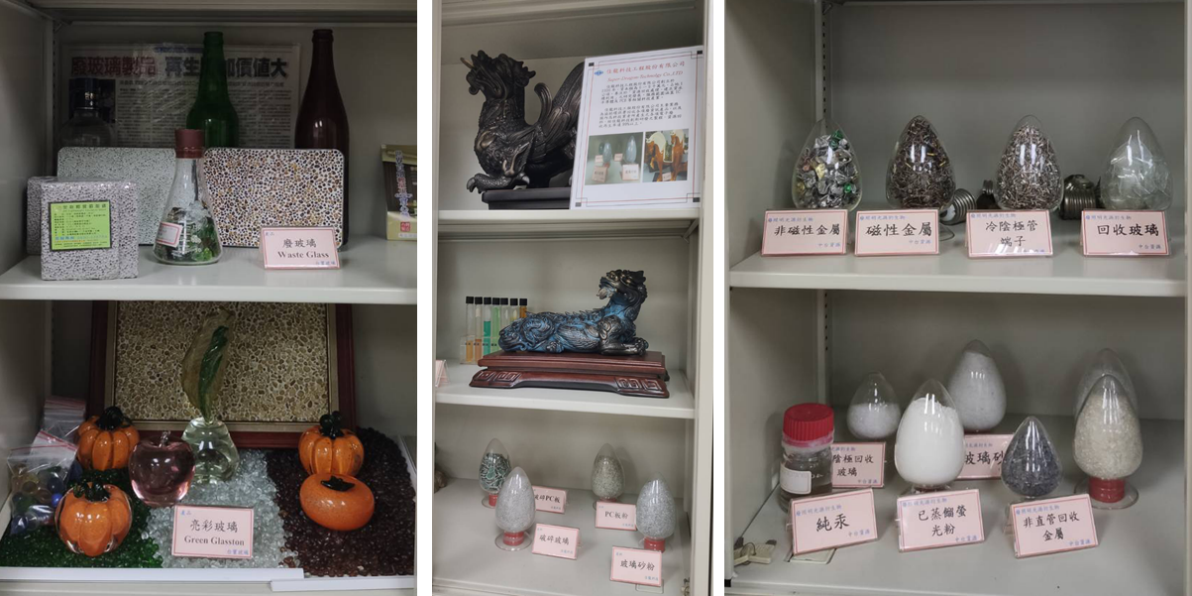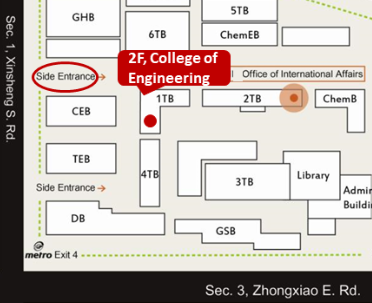Discussion on the experience of industry-university cooperation
| Discussion on the experience of industry-university cooperation |
|---|
|
Prof. Tien-Jin Chang of insititute of Environmental Engineering and Management Recycling oriented Environment Research Center(循環型環境研究中心) was established in 2001 to help build a system of domestic resource reduction, reuse, and recycling, including localized resource recycling technology and related databases of Material flow analysis, and to guide production, government, academia, and research All sectors are developing management policies, technologies, and product standards, cultivating resource recycling technology and elite management services, enhancing technical exchanges with foreign recycling industries and research institutions, implementing material recovery and reuse, saving natural resources and reducing waste Generate and reduce environmental load to build an environment for resource recycling and sustainable development to achieve the goal of the circular economy. At the beginning of the establishment of the Recycling oriented Environment Research Center, the industry-university unit was widely invited to join the research team. In the academic field, Institute of Environmental Engineering and Management, Department of Materials and Mineral Resources Engineering, the Department of Molecular Science and Engineering and Chemical Engineering and Biotechnology Department, National Taipei University of Technology, National Ilan University, National Kaohsiung University of Science and Technology, Chung Yuan Christian University and Da-yeh University participated in the research and development of technology, and specially hired Professor Ryota Shinohara of Prefectural University of Kumamoto in Japan and Dr. Akagi of the International Mercury Laboratory of Shuihou City in Japan to become a bridge for domestic and foreign exchanges; and the industry In terms of aspects, the Chung-Hua Institution for Economic Research and the Taiwan Green Productivity Foundation were invited to join the Research and Development team to make Research and Development technology more industrially valuable. Besides, the center also displays high-quality resource recycling products. Participating display and R&D partners include Chungtai Resources Technology CORP., Jiin Yeeh Ding Enterprise CORP., Quanshengxing Resources, Super Dragon Technology Co., E&E Recycling INC., SUS Recycling Technology INC., Shangqiyuan Environmental Protection, Rui Da Hung Technology Materials Co., CHC Resources CORP., Taiwan Steel Union Co., AMIA Co, Spring Pool Glass Industrial Co., TMC Metal Co, SingWay Technology Co, DuPont, and Hou Jan Industrial Co., etc. |
|
Recycling oriented Environment Research Center showcases high-quality resource recycling products |
|
The center is committed to promoting academic research and industry-academia cooperation. The host was awarded the National Taipei University of Technology Outstanding Industry-University Cooperation Award in 2008 and 2014, and the National Taipei University of Technology Outstanding Research Award in 2009. The research results are fruitful. The center and the industry jointly execute plans, conduct academic-related research, and assist in handling international conferences. Taking the cooperation of the Taiwan Industry Service Foundation as an example, in its implementation of the 2019 "Inspecting and Analyzing the Collection and Recycling systems of Waste Batteries and Waste Lamps, and Evaluating their Effectiveness" project work plan by the Environmental Protection Department of the Executive Yuan, commissioned the center to evaluate the distribution of hazardous materials and potential risks of domestic waste treatment institutions for waste dry batteries and waste lighting sources, and now also conducts investigation and analysis of secondary lithium batteries and LED lighting Its product structure changes, applications and market trends. Since the energy crisis in 2008, petrochemical energy has been gradually depleted. In addition to the global control of greenhouse gas emissions by the Kyoto Protocol, low-carbon energy conservation has become the goal pursued by the industry. At present, low efficiency and high consumption are gradually being eliminated in Taiwan. Energy products are devoted to the development and research of new energy or power products, and successively promote secondary lithium batteries and LED lighting related products to achieve the purpose of energy saving and carbon reduction. Lithium secondary batteries are not only superior to traditional secondary batteries in terms of theoretical or actual energy density, number of cycles used, and memory effects, but also have fewer toxic substances and are more in line with current environmental protection trends. Their related products include electric vehicles, wearables Smart products, personal computers, tablets and mobile phones, and other 3C products; LED lighting has the advantages of low energy consumption, ruggedness, long service life, mercury-free and other energy-saving and environmental protection, and countries gradually restrict the mercury content of lighting source products in accordance with the Minamata Convention on Mercury. The mercury-containing lighting are gradually being replaced by LED lighting, and the market economic value prospects are considerable. Lithium secondary batteries and LED lighting have become the focus of attention in the market. The center has also cooperated with the Taiwan Industrial Service Foundation to participate in the investigation and analysis of trends in secondary lithium batteries and LED lighting industries, and to evaluate their resource value and benefits. The consideration of domestic secondary lithium battery and LED lighting recycling and storage methods and regulatory measures has also driven research and development institutions to invest and innovate in the production of environmentally friendly products, thereby promoting industrial economic development and creating employment opportunities to implement the goal of sustainable development. The center promotes industry-university cooperation to achieve a win-win and mutually reinforcing outcome of the industry and academia. It also uses this to obtain R&D resources, enhance the quality and quantity of R&D, and strengthen students' practical experience and technology to enter the workplace, as well as enhance their employment capabilities and opportunities. Looking at the industry-university cooperation, both the academic and industrial sectors have achieved specific results. In the academic sector, they can assist the school in the industrialization of technology and the practical application of teaching, combine academic and practical, improve the quality of education, and assist students in using the industry-university cooperation mechanism. The platform, shorten the gap between students and students, the knowledge and technology that students learn at school can be close to market demand, and improve the competitiveness of employment; as for the industry, human resources in academia can be used to help companies improve R&D and transformation, and increase the added value of products. In order to meet the requirements of current environmental development trends, improve the competitiveness of domestic industries. |
|
Recycling oriented Environment Research Center showcases high-quality resource recycling products |



